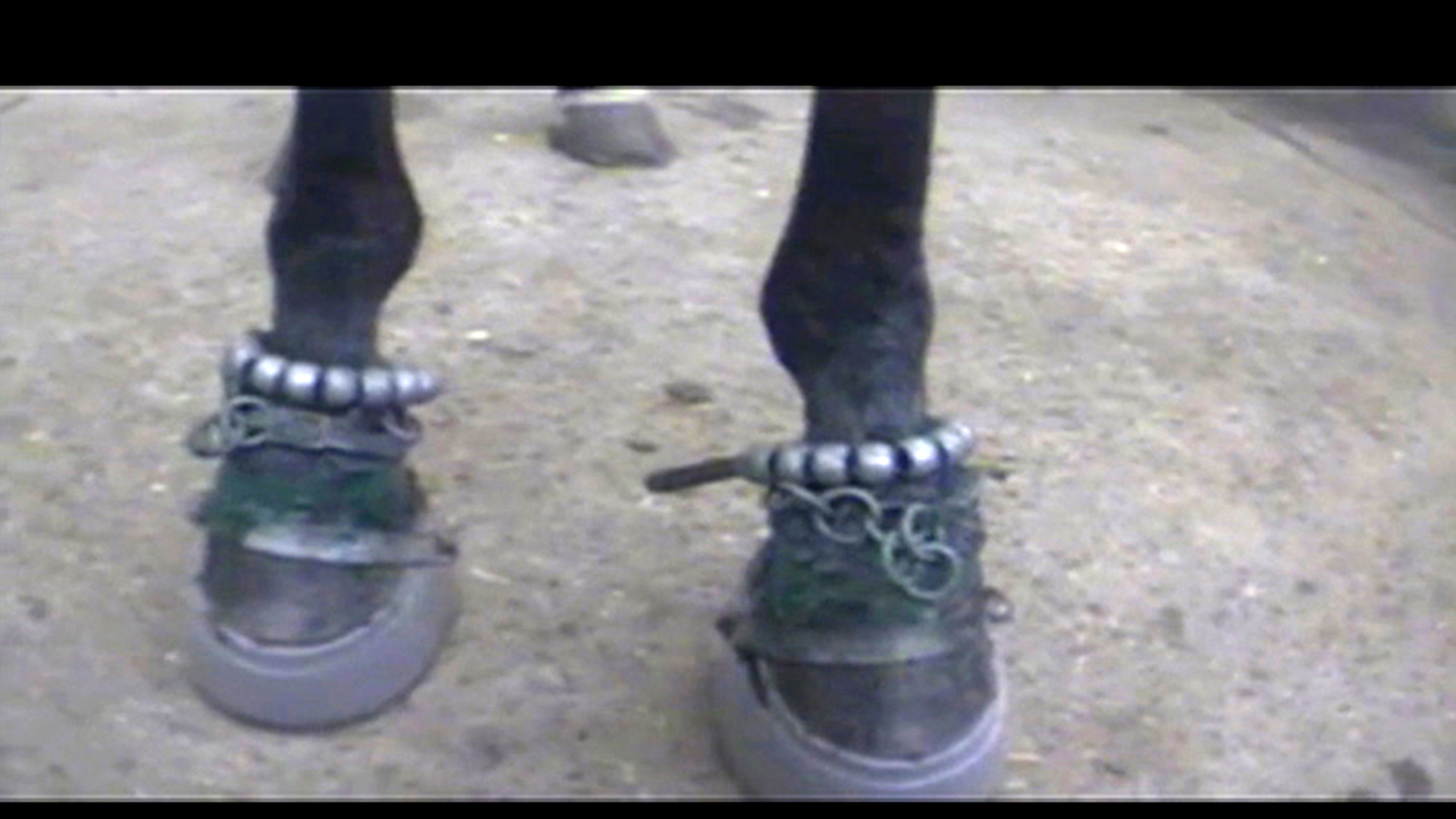Walking horse trainers begin testing for chemicals
Friday, January 1, 1904
With increased scrutiny of the Tennessee walking horse industry, the Walking Horse Trainers Association on Friday announced its own initiative to test for soring -- an illegal and painful method of making horses step high in competitions.
The trainers association will begin a swabbing protocol at shows to test for chemicals that make horses' feet and legs sore. The group also will test for pain-relief chemicals that are applied just before inspectors massage horses to detect tenderness.
The announcement comes after two major veterinary groups called Thursday for a ban of the exaggerated hoof pads, chains and other "action devices" and "performance packages" used to train and show walking horses.
"The soring of Tennessee walking horses is an extremely abusive practice, and it must end," said John Mitchell, president of the American Association of Equine Practitioners.
The American Veterinary Medical Association joined in the announcement.
"Soring has been an illegal act for more than 40 years. Nevertheless, increasingly shrewd and more difficult to detect -- yet equally painful -- methods of soring continue to plague the walking horse industry," said Dr. Rene A. Carlson, association president.
The problem is not so much with the devices alone, if they are below a certain weight, Carlson said in a statement. But using the devices -- including chains, ankle rings, collars, rollers and bracelets of wood or aluminum beads -- in conjunction with chemical irritants on the pastern of the horse's foot causes pain, resulting in what has become known as the walking horse "big lick" gait.
Foreign substances are being detected on the pastern area during preshow inspections at an alarmingly high rate, according to U.S. Department of Agriculture statistics, the veterinarians said.
The trainers group, in announcing its chemical sniffing initiative, expressed disappointment with the veterinarians' call for a ban on action devices.
But the trainers urged all horse shows and groups to adopt the initiative to sniff out the chemicals through the swabbing.
Walking Horse Trainers Association President Jamie Hankins said the organization was to begin the testing at its shows Friday.
Any trainer or entry that refuses the test will not be allowed to enter and will receive a two-week license suspension. The same goes for entries testing positive for a foreign substance.
